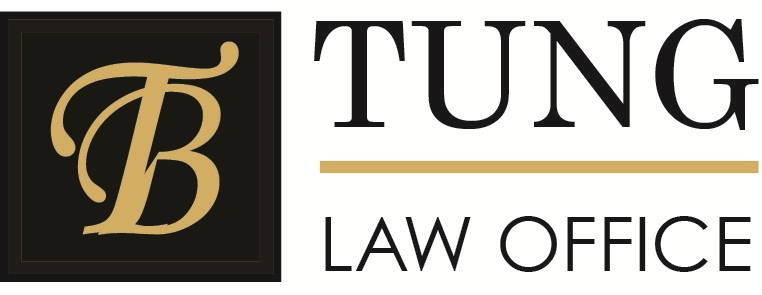Business Incorporation
If you are thinking of starting a new business under Provincial or Federal Incorporation, Incorporating that business is usually one of the smartest decisions you can make to have your company take its first steps in the right direction. It has many advantages such as limited liability, a professional presence and tax benefits, but incorporating is only one part– you also have to have your company properly organized, with minute book resolutions and bylaws. This often overlooked step helps to legitimize your business and can save you time and money as your business grows and you need to prove its existence and proper standing. At Tung Law Office we will make the legal work easy and painless for you. We offer after business hour services to fit your schedule if necessary. We can help you reserve your preferred corporate name, incorporate your company and organize your new business so that it is registered and legal.
Our incorporation/organization package includes everything you need:
- Incorporation, Initial return,Business Name Search
- Articles of Incorporation- Drafting and filling

- Corporation Minute book – Creation and Entries
- Corporation Resolutions
- By-laws
- Exemption from Audit Documentation
- Business Name search
- Share Certificates
- Directors and Officers Registers
- Shareholders Register and Ledger
Our rates are incredibly competitive and we offer all-in pricing so you know your exact costs. Please contact us and we can have your new business up and running within days or ask for our same-day rush service.
For further services, Business/Corporate Law lawyers in Brampton , Mississauga, Toronto and GTA area services and more detailed information, please contact:
Baljinder Singh Tung, Tung Law Office: 8- 1332 Khalsa Dr., Mississauga ON L5S 0A2, at Phone 905-670-2001, Fax 905-670-2003 and email [email protected]
PURCHASE/SALE OF A BUSINESS
Whether you are purchasing an existing business or selling your own business, you need a lawyer to guide you through the transaction. It is advisable to see your lawyer before any agreement is made. There are many aspects of a purchase or sale of a business that can be more efficiently handled before any deal is made. From drafting the initial Letter of Intent to the Purchase Agreement and right to the day of Closing, we can help you navigate all of the legal decisions and requirements. Here are just some of the issues that a purchaser and/or a vendor face in a purchase/sale transaction:
- Employees (staying, going, who is responsible for termination pay, etc.)
- Tax Arrears that may form a lien against the assets of the business

- Warranties and Guarantees on Purchased Assets
- Assignment of a Lease
- Transfer of Business Registrations, Names, Trademarks, Websites
- Structured Payments (Promissory Note secured against Assets/Shares)
- Vehicle Transfers
- Non-Competition and Non-Solicitation Agreements
- Confidentiality and Non-Disclosure Provisions
Please feel free contact us to discuss how we may assist in one of the most important aspects of your business and its future success.
For further services, Business/Corporate Law lawyers in Brampton , Mississauga, Toronto and GTA area services and more detailed information, please contact:
Baljinder Singh Tung, Tung Law Office: 8- 1332 Khalsa Dr., Mississauga ON L5S 0A2, at Phone 905-670-2001, Fax 905-670-2003 and email [email protected]
SHAREHOLDER & PARTNERSHIP AGREEMENTS
New entrepreneurs often overlook the importance of having an enforceable Shareholders Agreement (or Partnership Agreement) to govern how the new company is run. Shareholders of a Corporation and its partners form a written agreement. It is best prepared at the start of a business, when all parties have capacity and right to form and there have been no disputes or disagreements over the running of the business.
The agreement mainly covers the structure, funding, management and direction of the business, as well as outlining the rights, responsibilities and obligations of the owners. It is very much critical and important that the circumstances on merit, of a business and the parties involved are considered while forming the agreement.
The agreement is also designed to deal with the issues that, based on experience, have a distinct possibility of arising in the life of a business. It can also help to determine in advance how those issues will be dealt with should they arise – rather than having the parties react “after the event” for example Shareholder Agreements can help clarify what happens on the death or incapacity of another shareholder, the bankruptcy of a shareholder, how meetings are held, etc.
We would be happy to go through the options with you to determine the right ‘fit’ for you and your partner(s) to come to an agreement everyone is on board with.
Tung Law Office and experienced commercial lawyers can assist you with:
- Developing an Enterprise Agreement

- Developing a Buy/Sell Agreement
- Tax effective business structuring
- Charge securing shareholders loan
- Succession planning
- Drafting a Will that deals with an enterprise
- Appropriate treatment of a shareholding in an Estate
For further services, Business/Corporate Law lawyers in Brampton , Mississauga, Toronto and GTA area services and more detailed information, please contact:
Baljinder Singh Tung, Tung Law Office: 8- 1332 Khalsa Dr., Mississauga ON L5S 0A2, at Phone 905-670-2001, Fax 905-670-2003 and email [email protected]
Sole Proprietorship
A sole proprietorship is the most basic and an unincorporated form of business that is owned by one individual. It is the simplest kind of business structure.
It comes with the sole responsibility of the business owner for making its decisions as he receives all the profits, claims all losses, and does not have separate legal status from the business. If you are a sole proprietor, you also assume all the risks of the business. The risks extend even to your personal property and assets.
If you are a sole proprietor, you pay personal income tax on the net income generated by your business to the Canada Revenue Agency.
You may either choose to register a business name or operate under your own name or both.
If you operate as an individual, just bill your customers or clients in your own name. If you operate under a registered business name, bill your clients and customers in the business’s name.
It involves the following steps:
- Select Your Business Structure
- Create a Business Name
- Determine Availability of Your Business Name

- Register Your Business Name
- Register for Permits, Licenses and Taxes
- Complete a Partnership Agreement
- Open a Bank Account
- Start Your Business
For further services, Business/Corporate Law lawyers in Brampton , Mississauga, Toronto and GTA area services and more detailed information, please contact:
Baljinder Singh Tung, Tung Law Office: 8- 1332 Khalsa Dr., Mississauga ON L5S 0A2, at Phone 905-670-2001, Fax 905-670-2003 and email [email protected]
PPSA/SECURITY INTERST
If your company is loaning funds to another company or individual, or providing extended payment terms, make sure that you secure that risk.
We at Tung Law Office can help to ensure that your company is protected. We can draft the terms of the extended payment options or loan agreement and then we can register security pursuant to the Personal Property Security Act (PPSA) (Ontario). This will put you in the position of a secured creditor should a bankruptcy or insolvency occur.
We look forward to discussing the protection of your interests; please feel free to give us a call.
The scope of the Act is extremely broad, as it is concerned with every transaction which in substance creates a security interest, without regard to its form and without regard to the person who has title to the collateral. There are small differences between the provinces as to how far this extends, but the concept is basically the same. That said, however, there are some items that are specifically excluded:
- Liens
- Interests in annuities and insurance policies
- Interests in land (other than interests arising under a license), including leases

- Assignments for the general benefit of creditors
- Interests in any compensation for labor or personal services
Personal property is classified into the following categories:
- Goods (further classified into consumer goods, equipment and inventory)
- Instruments
- Documents of title
- Chattel paper (including leases and conditional sales contracts)
- Securities
- Money
- Intangibles (licenses and any other matter not included above)
For further services, Business/Corporate Law lawyers in Brampton , Mississauga, Toronto and GTA area services and more detailed information, please contact:
Baljinder Singh Tung, Tung Law Office: 8- 1332 Khalsa Dr., Mississauga ON L5S 0A2, at Phone 905-670-2001, Fax 905-670-2003 and email [email protected]
Secured Lending
When the time comes that your business needs access to funds – whether for expansion, acquisition, capital investment or otherwise, we can help.
Your lender will want various confirmations regarding the existence and standing of the company. They will also want various forms of security, which may include personal guarantees. Additionally there will be the closing documents and registrations that will have to be done in order to secure the funds being loaned. We are experienced at dealing with the lender requirements so that you can get the funds you need to take your business to the next level.
We can also help in the negotiations with the lender to get you a better deal and to ensure that you are comfortable with your obligations under the loan agreement.
For further services, Business/Corporate Law lawyers in Brampton , Mississauga, Toronto and GTA area services and more detailed information, please contact:
Baljinder Singh Tung, Tung Law Office: 8- 1332 Khalsa Dr., Mississauga ON L5S 0A2, at Phone 905-670-2001, Fax 905-670-2003 and email [email protected]
We are happy to assist your corporation at all stages of its growth. If you are amalgamating with another corporation or combining holding companies or operating companies for efficiency, we will work with your accountant to ensure the process is completed to put you in the best tax and legal position possible. We can also amend your Articles of Incorporation, whether the amendment is due to a name change, adding a class of shares, putting restrictions on shares or other corporate changes, we can help. We are also able to register additional business names if you are doing business under a name other than your corporation name, as failing to register could result in penalties and fines.
Annual Resolutions are an ongoing corporate requirement pursuant to legislation. Keep your company in good standing by having us prepare annual resolutions confirming all corporate acts, electing directors, transacting any special business and exempting audited financial statements (if applicable). We will also file any changes to directors, officers or corporate address with the Ministry of Government Services to keep your corporation in compliance with the applicable regulations.
- AMALGAMATION
- AMENDMENT
- NAME REGISTRATION/CHANGE
- ANNUAL RESOLUTIONS
- AUDIT EXEMPTION ETC.
For further services, Business/Corporate Law lawyers in Brampton , Mississauga, Toronto and GTA area services and more detailed information, please contact:
Baljinder Singh Tung, Tung Law Office: 8- 1332 Khalsa Dr., Mississauga ON L5S 0A2, at Phone 905-670-2001, Fax 905-670-2003 and email [email protected]
Demand Letters
It can be frustrating when you are legally owed money but for some reason you can’t collect. The first step is sending a demand letter on our letterhead to show that you are serious about collecting the debt. Until we get involved, the debtor sometimes thinks that you won’t escalate the matter and may cut your losses. Once we get involved, they realize that you have raised the stakes. In many cases, the debtor will be responsible for your legal fees as well so that you are not out of pocket.
Demand letters are also useful as ‘cease and desist’ letters where someone is infringing on your legal rights (whether it be using your trademark or failing to live up to some contractual obligation).
If it’s time to get serious, please give us a call.
For further services, Business/Corporate Law lawyers in Brampton , Mississauga, Toronto and GTA area services and more detailed information, please contact:
Baljinder Singh Tung, Tung Law Office: 8- 1332 Khalsa Dr., Mississauga ON L5S 0A2, at Phone 905-670-2001, Fax 905-670-2003 and email [email protected]
Why Do You Need a Minute Book?
Whether you have organized your corporation in Ontario or Canada your existence as a corporate entity begins with the filing of your organizational “Certificate of Incorporation” or “Articles of Incorporation” (states differ on what they call this document; Delaware uses “Certificate of Incorporation”). After this initial document is filed, the company can only act through its Board of Directors, usually initially appointed by the Sole Incorporator. Election of officers, approval of stock issuances and Options Grants, credit arrangements, changes in authorized shares, and certain other matters must be documented to evidence proper authorization by the Board pursuant to the Company’s charter and Bylaws. For more details, see our article What Decisions Need Approval from Your Board of Directors?
It is extremely important to keep excellent paper records. Over the life of your company, you will be asked on any number of occasions to provide evidence of Board approval of certain actions, whether in connection with the opening of an additional credit line, a seed round financing or on the eve of your initial public offering, when underwriters’ counsel really does want proof that the company was “duly incorporated” or backup supporting all those option grants over the years. Company counsel will also rely on these corporate records to back up a legal opinion or respond to due diligencerequests from potential investors’ counsel or perhaps a company interested in acquiring your assets. Having up-to-date, clear and concise records of all Board actions will make those processes less painful. The alternative is not only painful but can become expensive in terms of legal fees if it’s necessary to reinvent the wheel by recreating and ratifying all past actions.
What are “Minutes” and When Are They Produced?
At each Board meeting, one individual will be designated secretary of the meeting who will be responsible for preparing written notes (a.k.a. “minutes”) memorializing the discussions by the Board and setting forth any formal resolutions adopted at the meeting. These minutes will then be reviewed and approved by the Board at a subsequent meeting, signed by the secretary of the meeting and placed in the Minute Book. Once shares are issued, certain actions will also require stockholder approval, and those approvals will also need to be documented and included in the Minute Book.
How Do You Maintain a Minute Book?
A well-organized Minute Book might be divided into the following sections, each containing the documents listed and with an accompanying index:
-
Certificate of Incorporation: A file-stamped copy of the Certificate/Articles of Incorporation and all subsequent amendments as filed in the state of incorporation.
-
Bylaws: Your Bylaws and any amendments.
- Board of Directors:
- If initial directors are not identified in the Certificate/Articles, an executed action by sole incorporator appointing these individuals.
- An executed organizational consent or signed minutes of an organizational meeting in which the basic operations of the company are set forth.
- Minutes of all meetings signed by the secretary of the meeting.
- All written consents approving actions between meetings, executed by all Board members.
-
Stockholders: All actions by stockholders executed by the requisite majority or percentage of holders to authorize the actions detailed in the document.
In addition, for ease of reference, you might want to include a list of current officers and directors as well as any foreign qualification documents and the company’s tax I.D. and employer identification numbers.
Your lawyer can keep the original minute book materials. Many companies will keep an electronic minute book, using a cloud-based service to store and share materials. If your company does that, you can use a file structure organized as described above.
If you get in the habit of papering meetings right away and keeping your corporate records up to date, it really will not be as onerous as you might think.
CONTRACT DRAFTING AND NEGOTIATION
Whether it is a lease, an employment agreement a services or construction/renovation contract, or any other document that sets down your legal rights and obligations with another party, it is always wise to have a lawyer on your side. Why draft an agreement from scratch when someone has already put their mind to thinking about what should go in certain types of contracts and the issues that usually arise in certain matters. Proper opening remarks (called Recitals) are also helpful to ensure all parties are starting from the same presumptions. Also, there are standard ‘boiler-plate’ clauses that offer added protection to virtually all agreements, such as Notice clauses (i.e. how do you contact the other party legally if something goes wrong), jurisdiction clauses, arbitration clauses (which could save time and money) and counterparts clauses (to deal with signing issues).
In most cases, an all-in fixed price can be worked out. Additionally, contract templates can be provided for many contract types so that in the future you can just fill in the necessary information with the confidence that the remainder of the agreement is binding.
Some examples of template contracts that we can help you with are:
- Employment Contracts for Employers
- Invoices to Customers (allocating risk, penalties, payment dates/interest, return policies, etc.)
- Purchase Orders
- Construction/Renovation Contracts (you fill in scope of work, everything else is pre-defined)
- Ongoing Service Contract (i.e. pool contractor, landscaping, snow removal)
For further services, Contract Law lawyers in Brampton , Mississauga, Toronto and GTA area services and more detailed information, please contact:
Baljinder Singh Tung, Tung Law Office: 8- 1332 Khalsa Dr., Mississauga ON L5S 0A2, at Phone 905-670-2001, Fax 905-670-2003 and email [email protected]
CONTRACT REVIEW
It seems like almost every day there are Contracts or “Standard” Terms and Conditions that we are faced with. From banking agreements to employment contracts, leases, website registrations, real estate listing agreements, credit card agreements and the plethora of other services we sign up for, no doubt they are filled with ‘legalese’. We would be happy to ‘translate’ those contracts for you into terms that you can understand so that you appreciate what you are signing. Doesn’t just skim through that ‘fine print’ Please contact us for all your questions and for help.
Even if you’ve already signed an agreement, if you want to know exactly what your rights are under that agreement, send a copy to us and we will be happy to assist.
COMMERCIAL LEASING : LANDLORD AND TENANT SERVICES
Whether acting for Landlords or Tenants, Tung Law Office can help you with the drafting, negotiation and formalization of your lease. Usually, you will have a signed Offer (or Agreement to Lease) that is usually 5 or so pages and prepared by a real estate agent. We can help in the negotiation of this document, or if the deal is already firm, we can help formalize the transaction by finalizing the full lease which more fully sets out the respective rights and obligations of the parties (usually 20-30 pages).
Formalizing an Offer/Agreement to Lease is important, there are many issues that aren’t adequately set out or addressed in the Offer or issues that we can help revise and amend even after the deal is firm. Some issues a commercial leasing lawyer can help with are:
- TMI (Taxes, Maintenance, Insurance) – detailed lists of what is included/excluded, caps, etc.
- Exclusive Use Covenants
- Non-Disturbance Agreements (from current mortgage holders)
- Notice of Lease Registration (to protect interests on title)
- Renewal Provisions
- Options (Purchase, Leasing Adjacent Space, etc.)
- Insurance Requirements of the Landlord and the Tenant
- Specific Default Provisions and Remedies
- Title Search – to ensure the landlord is the owneretc.
Please contact us if you are a landlord currently marketing your premises for lease as we can create a standard leasing template for you or if you are a tenant who has just signed (or better yet) considering signing an Offer Sheet/Agreement to Lease.






